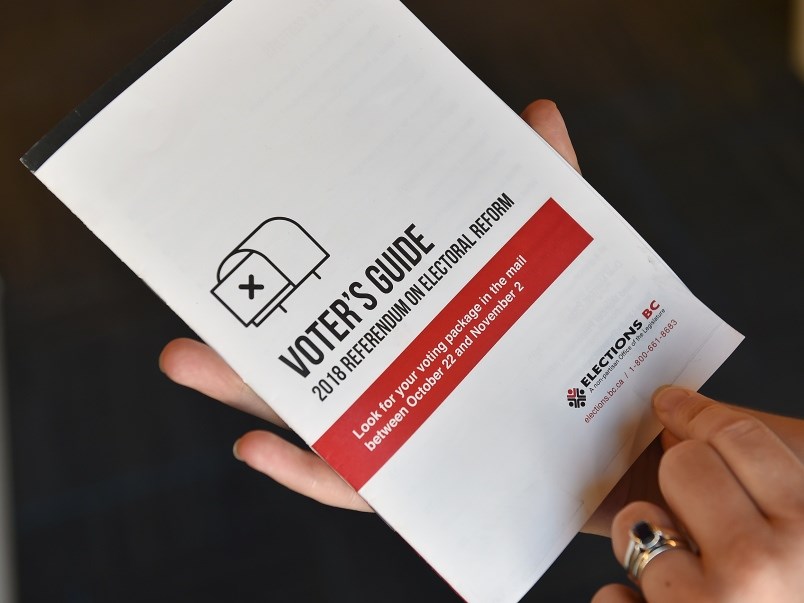If I had a dollar for every time I heard someone comment their “faith in democracy” was restored and/or undermined after proportional representation was resoundingly defeated in the recent mail-in referendum vote, I could have bought myself a decent restaurant meal.
Now that the “No” side has taken its victory lap, could we reflect upon whether democracy in B.C. was well-served by the outcome of that vote? I have mixed feelings notwithstanding my support of keeping our first-past-the-post voting system.
We keep hearing how grumpy the electorate is today. Yet, after spending $15 million to conduct a vote to allegedly address the concerns of many of those voters, we are already interpreting the results of the vote as an endorsement of the status quo.
This, I believe, misreads the message voters sent.
While party leaders John Horgan or Andrew Wilkinson probably do not have a huge appetite at the moment for further maneuvers to reform B.C.’s Legislature, dismissing the results as an endorsement of more of the same could be politically perilous for either of them.
In fact, I think it is safe to say the public expects more from those they elect, and one or both of them should acknowledge this fact.
My view about the “pro rep” vote is that electoral reform was the wrong solution for what really ails politics in Canada at all three levels of government — that is, the concentration of power in the leader’s office and often, too, the mayor’s office in local government.
In our system, once a party forms a majority government, they can rule as though the Official Opposition does not exist at all (and many try). The principal purpose of opposition members — and even those on the government’s backbench — is reduced to voting the way they are told to by party whips.
Proponents of pro rep tried to convince voters that by changing elections it would suddenly change how the legislature would work. Critics of PR derided the idea as pie-in-the-sky “Kumbaya politics” — where everyone would miraculously see eye-to-eye.
In fact, nothing about proportional representation itself would prevent each elected official from going into their respective corners and voting along partisan lines, or forming power blocks within Parliament, the Legislative Assembly or at city hall.
In our country we use the Westminster parliamentary model, as does the U.K., Australia and other countries. What distinguishes parliaments in Canada (and in her provincial legislatures) from these other countries, is the level of power the party leaders hold here.
It is said we are unique among Westminster model governments in concentrating so much power in the hands of so few. Instead of leaders needing to be accountable to their caucus members, the political fortunes of individual parliamentarians here remain squarely in the hands of the leader.
Conservative Party MP Michael Chong sought to change this imbalance with a private member’s bill that received royal ascent in 2015. Under the Reform Act, each party caucus can vote at the beginning of each parliament on whether or not it will adopt the Act's procedures, which can ultimately test the power of the leader.
There are many research papers that explore the use of party discipline to “whip” caucus votes. In the U.K., where party discipline is less stringent, there are a significantly higher number of votes that go against the will of the party leader. However, it is not clear that this results in better legislation or more effective government.
And it cannot be said that Britons are more enamored with their politicians than Canadians are, despite giving them more opportunities to vote their conscience.
In other words, there is no simple solution to reforming these legislative bodies. But that is no reason to stop trying.
In the Vancouver, we watched how the Vision government voted consistently as a block for nearly a decade. This behaviour frustrated voters, who sent them into political oblivion in 2018.
The new council must avoid repeating this mistake. Whether NPA, Green, OneCity, COPE or independent, all should find opportunities where their vote may not necessarily align with those of the same political persuasion.
It is a small step that might give us more faith in who we elect.
mike@mikeklassen.net



